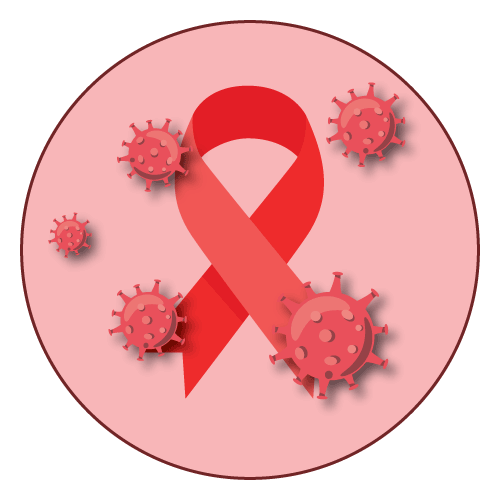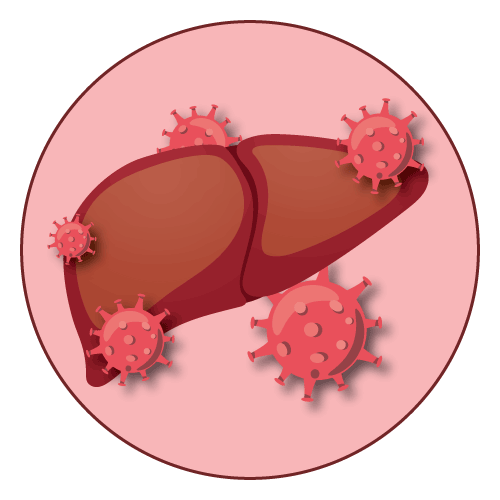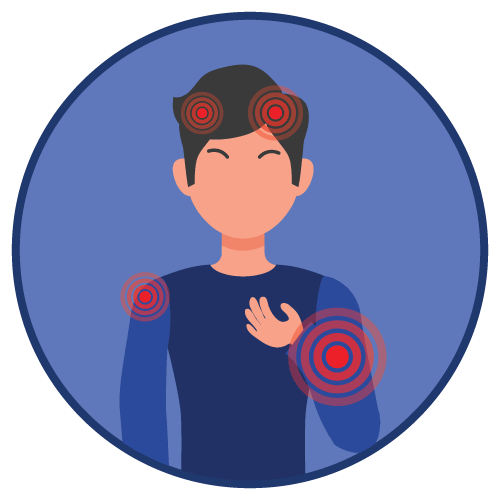| Name | Tenofovir |
| Classes |
Antiinfective Agent Antiviral Agent NRTI (Nucleoside Reverse Transcriptase Inhibitor) |
| Diseases |
Hepatitis B HIV Infectious Disease |
Tenofovir
Tenofovir is a nucleotide analog HIV-1 reverse transcriptase inhibitor and an HBV reverse transcriptase inhibitor. It inhibits viral multiplication by inhibiting viral DNA synthesis form RNA.
Tenofovir is indicated for:
- in combination with other antiretroviral agents for the treatment of HIV-1 infection in adults and pediatric patients 2 years of age and older weighing at least 10 kg.
- for the treatment of chronic hepatitis B in adults and pediatric patients 2 years and older weighing at least 10 kg.
- Testing: Prior to or when initiating Tenofovir test for hepatitis B virus infection and HIV-1 infection. Prior to initiation and during use of Tenofovir, on a clinically appropriate schedule, assess serum creatinine, estimated creatinine clearance, urine glucose, and urine protein in all patients. In patients with chronic kidney disease, also assess serum phosphorous.
- Recommended tablet dosage in adults and pediatric patients weighing at least 35 kg: One Tenofovir 300 mg tablet once daily taken orally without regard to food.
- Recommended dosage in pediatric patients at least 2 years of age and adults: o Tablets: For patients weighing at least 17 kg who can swallow an intact tablet, one Tenofovir tablet (150 mg, 200 mg, 250 mg, or 300 mg based on body weight) once daily taken orally without regard to food.
- Oral powder: For patients weighing at least 10 kg and unable to swallow a tablet, 8 mg per kg Tenofovir oral powder (up to a maximum of 300 mg) taken once daily with food.
- Recommended dosage in renally impaired adult patients:
-
- Creatinine clearance (CrCl) 30−49 mL/min: 300 mg every 48 hours.
- CrCl 10−29 mL/min: 300 mg every 72 to 96 hours.
- Hemodialysis: 300 mg every 7 days or after approximately 12 hours of dialysis.
- In HIV-infected adult subjects: Most common adverse reactions were rash, diarrhea, nausea, headache, pain, depression, and asthenia.
- In HBV-infected subjects with compensated liver disease: Most common adverse reaction (all grades) was nausea (9%).
- In HBV-infected subjects with decompensated liver disease: Most common adverse reactions (incidence greater than or equal to 10%, all grades) were abdominal pain, nausea, insomnia, pruritus, vomiting, dizziness, and pyrexia.
- In pediatric subjects: Adverse reactions in pediatric subjects were consistent with those observed in adults.
- Acute renal failure and Fanconi syndrome are examples of new or worsening renal impairment. Avoid taking Tenofovir if you are currently taking or have recently taken a nephrotoxic medication.
- HIV testing: Before starting Tenofovir therapy, all HBV-infected patients should have HIV antibody testing. In HIV-infected patients with or without HBV coinfection, Tenofovir should only be used as part of an appropriate antiretroviral combination regimen.
- Immune reconstitution syndrome: Further evaluation and treatment may be required.
- Bone mineral density (BMD) decreases: Consider assessing BMD in patients who have a history of pathologic fracture or other risk factors for osteoporosis or bone loss.
- Lactic acidosis/severe hepatomegaly with steatosis: In patients who develop symptoms or laboratory findings suggestive of lactic acidosis or pronounced hepatotoxicity, discontinue treatment.
Contraindication
None known.
None known.
None known.
 Bangla
Bangla English
English








